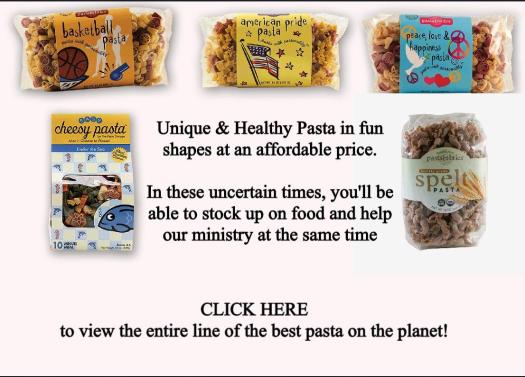The holy Temple and all the sacrifices that take place in it point toward immortality and incorruptibility. The sacrifices are not about death; they are all about life.
Portion Summary
The twenty-fifth reading from the Torah and second reading from the book of Leviticus is called Tzav (צו), which means “Command.” The name comes from the first word of Leviticus 6:9, where the LORD says to Moses, “Command Aaron and his sons …” Tzav reiterates the five types of sacrifices introduced in the previous portion but this time discusses the priestly regulations pertaining to them. The last chapter of the reading describes the seven-day ordination of Aaron and his sons as they prepared to enter the holy priesthood.
-
Special Shabbat Reading
Special readings are applicable this Shabbat.
- Shabbat HaGadol (שבת הגדול | The Great Sabbath)
- Haftarah: Malachi 3:4-24
- Gospel: Matt 17:9-13
Shabbat HaGadol (“Great Shabbat” שבת הגדול) is the Shabbat immediately before Passover. There is a special Haftarah reading on this Shabbat of the book of Malachi. Traditionally a lengthy and expansive sermon is given to the general community in the afternoon.
Regular Shabbat Readings
READ / LISTEN TO THESE PORTIONS
- Tzav (צו | Command)
- Torah: Leviticus 6:1-8:36
- Haftarah: Jeremiah 7:21-8:3, 9:22-23
- Gospel: Matthew 9:10-17
Note: The regular readings are often interrupted with special readings on Jewish holidays, special Sabbaths, and Rosh Chodesh. Refer to the annual Torah Portion schedule for these special portions.
Portion Outline
- TORAH
- Leviticus 6:8 | Instructions concerning Sacrifices
- Leviticus 7:11 | Further Instructions
- Leviticus 8:1 | The Rites of Ordination
- PROPHETS
- Jer 7:16 | The People’s Disobedience
Portion Summary
The twenty-fifth reading from the Torah and second reading from the book of Leviticus is called Tzav (צו), which means “Command.” The name comes from the first word of Leviticus 6:9, where the LORD says to Moses, “Command Aaron and his sons …” Tzav reiterates the five types of sacrifices introduced in the previous portion but this time discusses the priestly regulations pertaining to them. The last chapter of the reading describes the seven-day ordination of Aaron and his sons as they prepared to enter the holy priesthood.
But if the sacrifice of his offering is a votive or a freewill offering, it shall be eaten on the day that he offers his sacrifice, and on the next day what is left of it may be eaten; but what is left over from the flesh of the sacrifice on the third day shall be burned with fire. (Leviticus 7:16-17)
A person who offered a peace offering needed to eat the meat of the sacrifice within two days. One who ate of a sacrifice from the altar on the third day or later invalidated the sacrifice. Eating of the peace offering on the third day incurred the penalty of excision. The person was to be “cut off.” Three days after the slaughter, the meat began to turn rancid. As an earthly reflection of the heavenly dwelling place of God, the Sanctuary naturally shuns death and mortal corruption.
Though the sacrificial system requires the death of the sacrifice, it avoids the decomposition of the sacrificial meats. Better that the meat be burned than decompose. The same striving toward incorruptibility explains why all the sacrifices were salted, as Leviticus 2:13 says, “With all your offerings you shall offer salt.” Salt functioned as a preservative. The same striving toward incorruptibility explains why the construction of the Tabernacle used only the resinous shittim wood. Like cedar wood, shittim resisted decay.
The Tabernacle and its services symbolize immortality. The sacrifices and the Tabernacle worship point toward life, the imperishable world, and the worship of the Immortal One.
The peace offerings allude to the Master’s resurrection on the third day. The Master rose on the third day, as Scripture says of Him, “You will not abandon my soul to Hades, nor allow your Holy One to undergo decay.” The mortal body of Yeshua did not undergo decay. In this regard, the worship system of the Tabernacle foreshadows our transformation in Messiah. Through the resurrection in Messiah, human bodies will be changed from corruptible to incorruptible: “He will revive us after two days; He will raise us up on the third day, that we may live before Him” (Hosea 6:2). We will pass from the mortal to the immortal:
For this perishable must put on the imperishable, and this mortal must put on immortality. But when this perishable will have put on the imperishable, and this mortal will have put on immortality, then will come about the saying that is written, “Death is swallowed up in victory. O Death, where is your victory? O Death, where is your sting?” (1 Corinthians 15:53-55) (Click to Source)

24/7, 365 access to a board certified medical doctor, by phone or video. One low monthly cost of $12.95 for an individual plan or $19.95 for a family plan. No extras! No added consult fees! All inclusive! Visits are anytime, day or night and holidays. Cancel anytime. No one should ever be without this plan and everyone can afford it. This special pricing is for my readers here.

